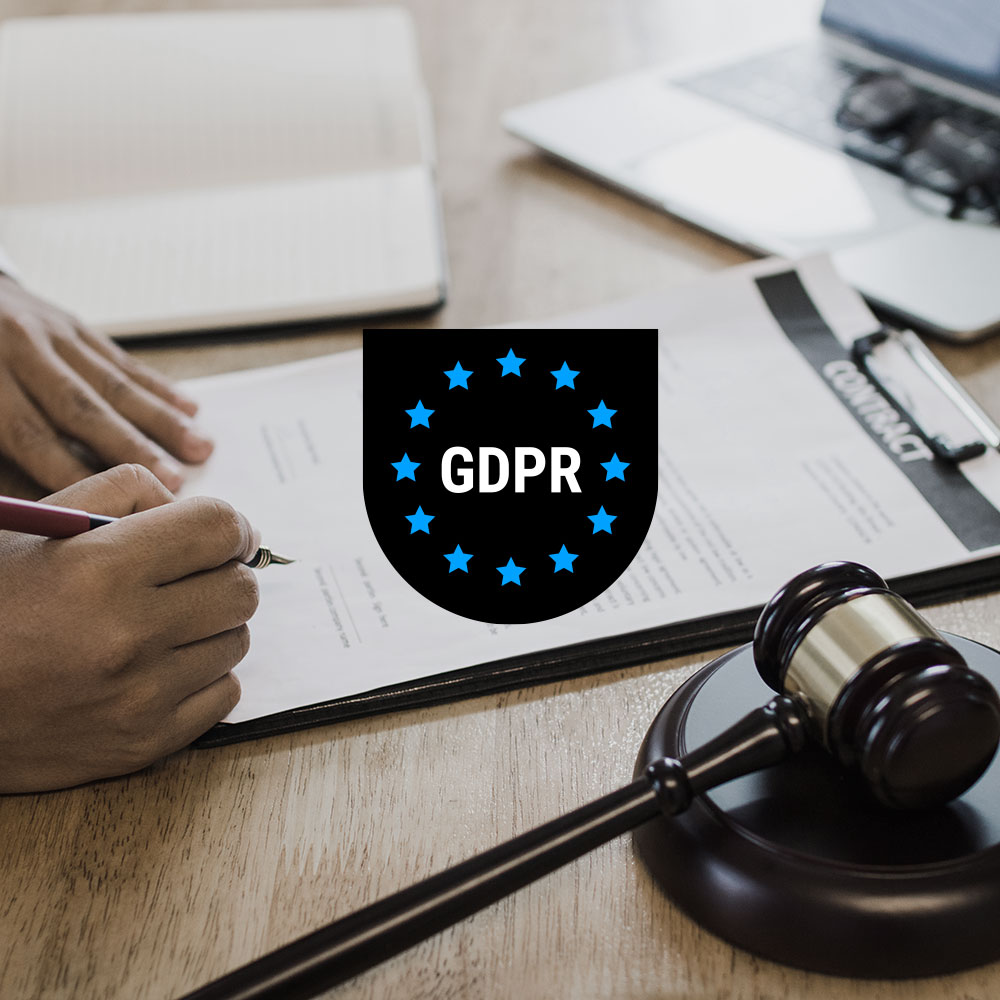The Digital Markets Act (DMA) and the Digital Services Act (DSA) were enacted by the European Commission under one regulation package, the Digital Services Act package (DSA package), but they are in fact separate and independent laws.
The two Acts have a lot in common, as both aim to regulate digital markets with rules imposed on companies owning online services and platforms. Although there are many similarities between the DMA and DSA, they have different focuses and objectives. In this article, we’ll explore the differences between the Digital Markets Act (DMA) and the Digital Services Act (DSA), highlighting the scope, regulatory measures, and implications for businesses and consumers.
DMA and DSA: Introduction to the Digital Markets Act and the Digital Services Act
The Digital Markets Act (DMA) and the Digital Services Act (DSA) are comprehensive regulations introduced in the EU to address the challenges posed by digital platforms. They aim to manage growing concerns related to competition, consumer protection, and the responsibilities of digital platforms in the online space.
The DMA and DSA strike a balance between fostering innovation and competition while working to ensure consumer protection and a secure online environment. The introduction of these regulations reflects the growing recognition of the need to regulate the digital sector and bring it in line with societal values and market principles.
DMA vs DSA: Differences in scope and applicability
One of the primary distinctions between the Digital Markets Act (DMA) and the Digital Services Act (DSA) lies in their respective scopes and applicability. The DMA primarily addresses designated gatekeepers, companies with a significant influence and impact on the market. The DSA takes a more comprehensive approach, encompassing a wider range of digital intermediary services and imposing stricter requirements on very large online platforms (VLOPs) and very large online search engines (VLOSEs) to address societal risks associated with their operations.
The scope of these acts differs significantly as well. The DMA primarily focuses on fostering a fair and competitive digital market, while DSA addresses the EU’s concerns regarding the growing influence of online platforms in political discussions, disinformation campaigns, fake news dissemination in the lead-up to elections, and the societal impact of hate speech.
In general, the DSA aims to create a safer digital space, protect users’ fundamental rights, and establish a level playing field for businesses in the EU. It dictates new rules for VLOPs and VLOSEs to ensure that they are responsible for content published and that users’ data is respected and secured.
Who does the Digital Markets Act apply to?
The DMA applies to companies that own large online platforms—which the law designates and refers to as gatekeepers play a dominant role in the digital ecosystem, providing core platform services—also specified by the law—that provide essential access to end users.
These gatekeepers are characterized by their strong economic position, significant influence over and impact on the market and on competitors, and active presence in multiple EU countries or the entire EU/EEA region. To be subject to the DMA, a company must hold a strong market position and connect a large user base to numerous businesses. The seven designated gatekeeper companies to date that fall under the DMA’s requirements include:
- Apple
- Amazon
- Alphabet (parent company of Google and Android)
- Meta (parent company of Facebook, Instagram and WhatsApp)
- Booking.com
- ByteDance (parent company of TikTok)
- Microsoft
Under the DMA, gatekeepers will need to follow a set of rules that prevent them from engaging in unfair practices on their platforms, promoting a fairer and more competitive digital environment.
Read more: Gatekeepers’ role under the DMA explained
Who does the Digital Services Act apply to?
In contrast, the Digital Services Act (DSA) covers a wider range of online services, including social media sites, ecommerce stores, and various other online providers. The DSA applies to all digital intermediary services, in particular to very large online platforms (VLOPs) and very large online search engines (VLOSEs) with 45 million or more monthly active users in the EU.
These services need to evaluate the societal risks of their operations, such as sharing harmful content and its potential impact on elections, human rights, and the mental health of users. They must take measures to mitigate these identified risks. While the DSA is often associated with regulating tech giants from Silicon Valley, it should be noted that thousands of smaller European service providers will also be affected by the new obligations.
Examples of online platforms within the scope of the DSA include YouTube, Zalando, Instagram, LinkedIn, Wikipedia, Booking.com, Snapchat, Amazon Store, Google Play, and more.
DMA vs DSA: Differences in regulatory measures and obligations
Differences between the Digital Markets Act (DMA) and the Digital Services Act (DSA) are apparent in the separate regulatory measures and obligations they impose on digital platforms. The DMA sets out a list of obligations for designated gatekeepers, including requirements to:
- eliminate unfair or anti-competitive practices
- provide access to data gathered or generated on their platforms
- ensure compatibility
- prevent favoring their own or specific partners’ functionality or services
These provisions are aimed at promoting a fair and competitive digital landscape within the European Union. On the other hand, the Digital Services Act (DSA) aims to create a safer and more transparent online environment for users. The DSA introduces new obligations for online platforms, including:
- content moderation
- mechanisms for handling user complaints
- transparency of algorithms
- cooperation with authorities
- measures to prevent spreading illegal content
While both Acts address different aspects of the digital market, there are some areas of overlap. For example, both regulations recognize the importance of transparency in online platforms’ practices. The DMA requires designated gatekeepers to provide transparency reports on their algorithms and ranking criteria, while the DSA requires reports on content moderation practices from the VLOPs.
Read about DMA consent now
DMA vs DSA: Differences in approach to regulation
Another significant difference between the DMA and DSA is their approach to regulation. The DMA adopts an ex-ante regulatory approach, meaning it imposes specific obligations on digital platforms before any potential harm occurs. On the other hand, the DSA takes an ex-post approach, setting out general principles and obligations for online intermediaries. This approach allows for adaptation to evolving challenges and technologies.
DMA vs DSA: Differences in impact on businesses
Both the DMA and DSA are expected to have a significant impact on digital platforms and online services and therefore will require businesses to operate in new ways.
Digital Markets Act (DMA) impact on businesses
Platforms identified as gatekeepers under the DMA will likely need to make substantial changes to their business models and operations to ensure compliance with the new obligations. Online intermediaries covered by the DSA will also need to adapt to the new regulatory requirements, implementing measures to combat illegal content and enhance transparency.
In order to comply with the DMA, gatekeepers and businesses that rely on their platforms will likely need to make substantial investments in technology, staffing, and legal resources, potentially leading to increased operating costs. Furthermore, the DMA’s provision for imposing fines on noncompliant platforms adds to the potential financial burden.
Digital Services Act (DSA) impact on businesses
The Digital Services Act (DSA) presents its own set of challenges and opportunities for businesses. Compliance with obligations such as content moderation, handling user complaints, transparency of algorithms, cooperation with authorities, and measures to prevent the spread of illegal content can be costly. However, such efforts can also enhance user trust and safety, ultimately benefiting businesses by creating a more secure online environment.
Businesses may need to allocate resources to actively moderate user-generated content, ensuring it aligns with DSA standards. Additionally, the DSA may encourage greater transparency and cooperation with regulatory authorities, which can impact businesses’ relationships with governmental bodies. Lastly, businesses may need to adapt to stricter reporting and transparency requirements, fostering a culture of accountability and responsibility in the digital ecosystem.
DMA vs DSA: Differences in implications for consumers
The DMA and DSA will have implications for both businesses and consumers operating in the digital market. Businesses will need to reassess their strategies, adapt to the new rules, and ensure compliance to remain competitive. Consumers, on the other hand, will benefit from increased transparency, user protection, and fair competition brought about by these regulations. However, there may also be potential trade-offs, such as reduced innovation or limited access to certain services.
Digital Markets Act (DMA) implications for consumers
The DMA ensures that end users have a say in their digital experiences, challenging the dominance of gatekeepers. Here, we delve into how these obligations directly impact online consumers.
1. Enhanced user control
The DMA empowers end users by enabling them to uninstall pre-installed apps and adjust default settings easily. Choice screens for key services will also be more accessible, granting users control over their digital experiences.
2. Third-party app access
The DMA promotes competition by enabling users to install and use third-party apps and app stores. This provision opens doors to a broader range of digital applications and services.
3. Easy removal of subscriptions
Users can unsubscribe from gatekeepers’ core platform services as effortlessly as they subscribed. This helps to ensure user freedom and reduces lock-in effects.
4. Fair competition
The DMA helps to ensure fair competition by prohibiting gatekeepers from favoring their products over third-party offerings. It also prevents gatekeepers from mandating app developers use their services.
5. Privacy protection
The DMA protects user privacy by banning tracking for targeted ads outside gatekeepers’ core services without user consent. This safeguards users from intrusive tracking practices.
Digital Services Act (DSA) implications for consumers
As the DSA applies to very large online platforms (VLOPs) and very large online search engines (VLOSEs) it will likely affect all consumers who use digital services in Europe. The implications are expected to be mostly positive. Let’s look into some examples.
1. User empowerment
Users will better understand why certain content is suggested to them and can opt out of profiling. This shift toward user rights enables individuals to challenge platform decisions on their content and service access.
2. Online safety
The DSA places a strong focus on ensuring online safety. Digital service providers have responsibilities to prevent illegal content from being published and disseminated on their platforms. Content like hate speech and promotion of illegal products or services will have to be prevented from spreading. This means users can expect a safer digital environment with less exposure to harmful content.
3. Transparency and accountability
Users will get clearer platform policies and information on AI and human roles. Platforms must also notify users of significant term changes and apply rules fairly, respecting users’ rights and freedom of expression in content moderation.
4. User-centric advertising
The DSA strengthens user rights in advertising. It forbids targeted ads based on sensitive data and demands clear labeling, disclosure of promoting companies, and explanations for ad targeting. Users will be able to clearly distinguish between sponsored and regular content.
5. Less illegal content
The DSA’s main objective is to reduce illegal content online, such as selling of counterfeit goods and unlawful materials. It aims to create a safer digital environment with less harmful content circulating on online platforms.
Challenges and criticisms
While the DMA and DSA have been welcomed as steps towards a more regulated and responsible digital landscape, they are not without challenges and criticisms. Some argue that these regulations may stifle innovation and limit the ability of digital platforms to compete globally. Concerns have also been raised regarding potential regulatory burdens and the impact on small businesses. Striking the right balance between regulation and innovation will require ongoing dialogue, collaboration, and careful monitoring.
Future implications
In conclusion, both the DSA and DMA are significant regulations introduced in the EU to regulate the digital market and address the challenges posed by digital platforms. While the DMA focuses on market competition and leveling the playing field, the DSA emphasizes user protection and transparency. Despite their differences, both Acts recognize the importance of transparency in online platforms’ practices and aim to create a fair and competitive digital market. As businesses and consumers adapt to these regulations, the business landscape online will likely undergo significant changes.
Get ready for the DMA and DSA with Usercentrics CMP
Usercentrics Web & Apps CMP are Google-certified, fully supporting Transparency and Consent Framework (TCF) and Google Consent Mode v2.
If your company relies on digital services, as is the case for most businesses today, and conducts business in the EU, it’s likely that you’ll need to strengthen your data privacy safeguards and improve the way you manage user consent. Regardless of whether your business qualifies as a very large online platform (VLOP) or falls under the gatekeepers’ category, the effects of the DSA and DMA will likely eventually affect your operations. By taking proactive steps, you can prepare for the upcoming requirements and changes.
First, understand the data your organization collects, how it is acquired, shared, and utilized. Review internal policies related to user data handling, consent acquisition, and data utilization, including third-party sharing agreements.
Then, ensure that your website or app uses appropriate privacy tools, obtains user consent in a compliant manner, and maintains a clear and transparent privacy policy. Consider implementation of a privacy compliance solution that gets you ready for the DMA, such as Usercentrics Consent Management Platform (CMP) or Mobile App SDK. These solutions bring a variety of benefits:
- enabling secure user consent collection
- respecting user privacy and personal data
- providing analytics on consent preferences for optimizing opt-in rates
- enabling compliance with relevant data privacy regulations
The Usercentrics CMP is continuously updated and automated to meet all DSA and DMA requirements. It also helps organizations to comply with the GDPR, the most important data protection regulation in the European Union.
Start free 14-day trialStay informed about future DMA updates and related developments by subscribing to the Usercentrics newsletter.
Subscribe nowDisclaimer:
Usercentrics does not provide legal advice, and information is provided for educational purposes only. We always recommend engaging qualified legal counsel or privacy specialists regarding data privacy and protection issues and operations.



